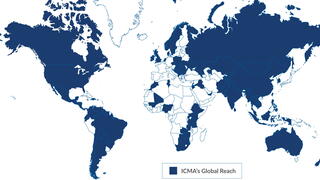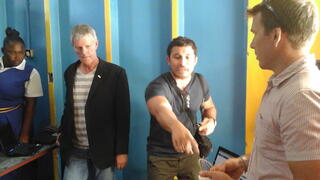
ICMA Members Are a Crucial Part of the Association's International Work

How to Get Financial Support for Community Projects

ICMA Executive Director Marc Ott discusses the value of P3s in financing critical local government projects in this January 2018 Business View Magazine article.


Building a Strong Foundation for Partnership

They are an important part of the infrastructure toolkit, but they can't replace tax-exempt debt.
The North Carolina Association of County Commissioners/ICMA Local Government Management Joint Fellowship Program: Reaching rural communities and the next generation of local government leaders.

